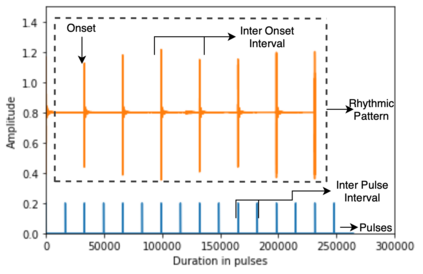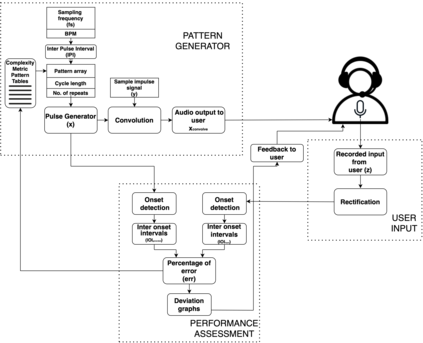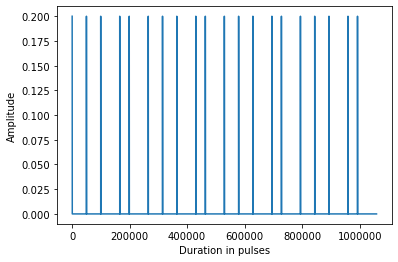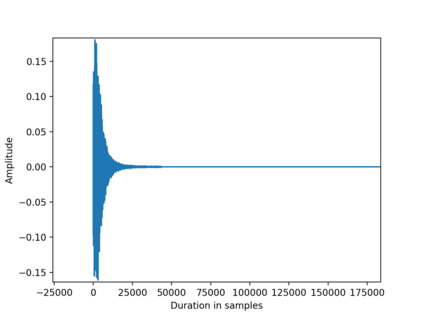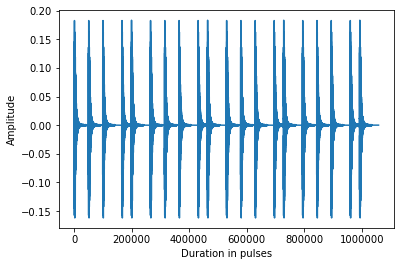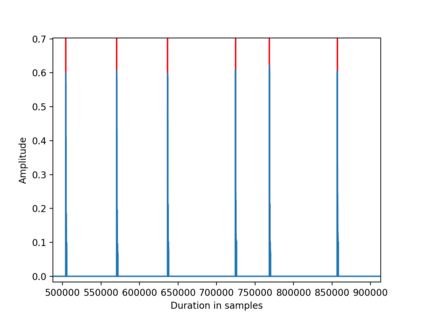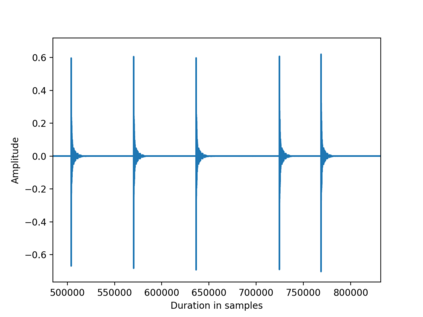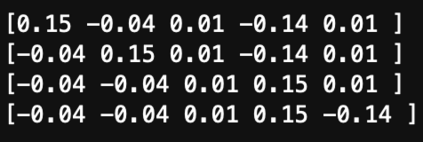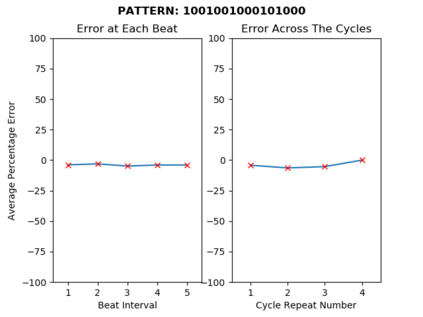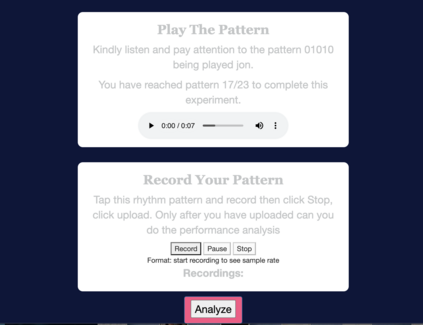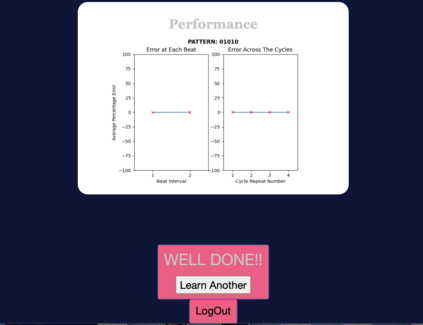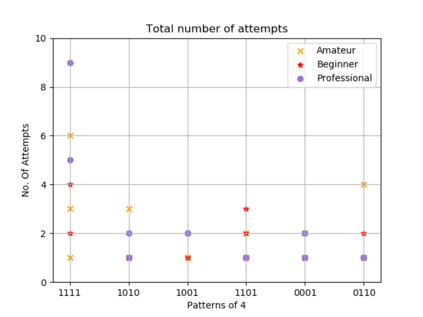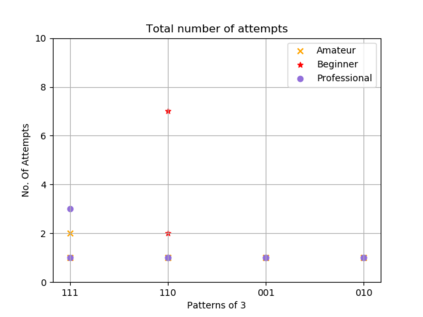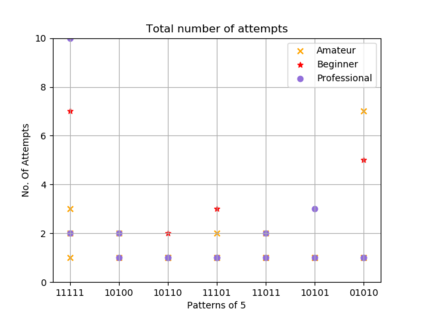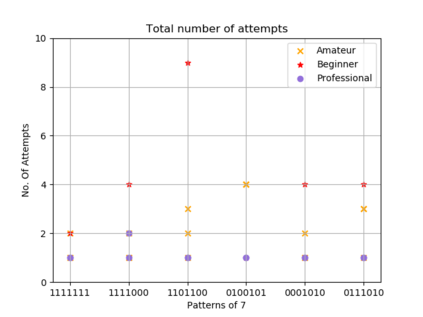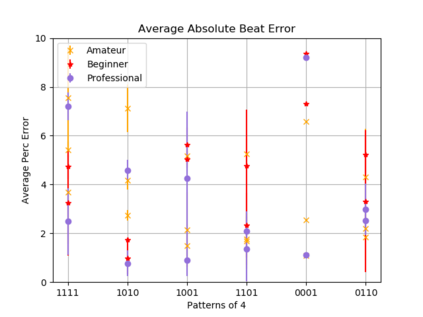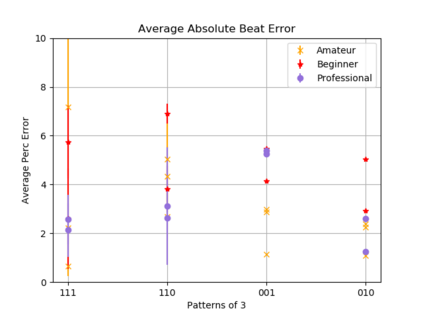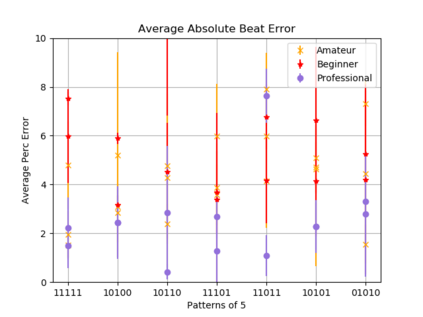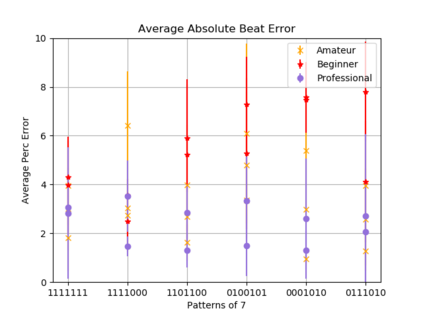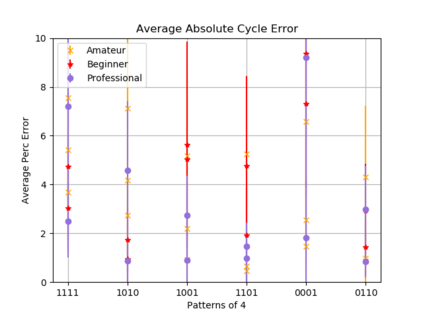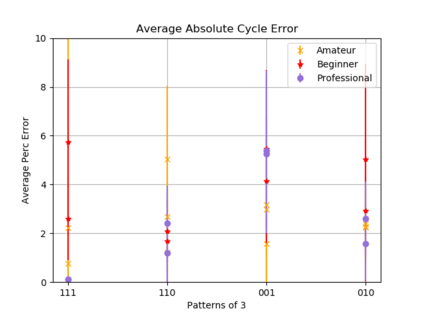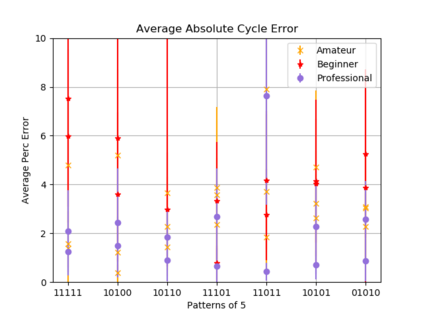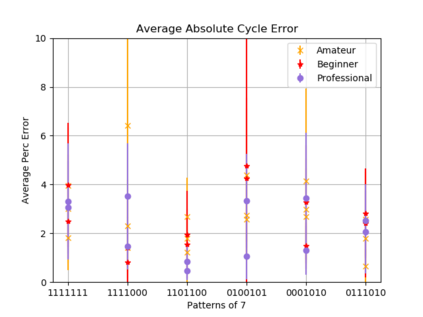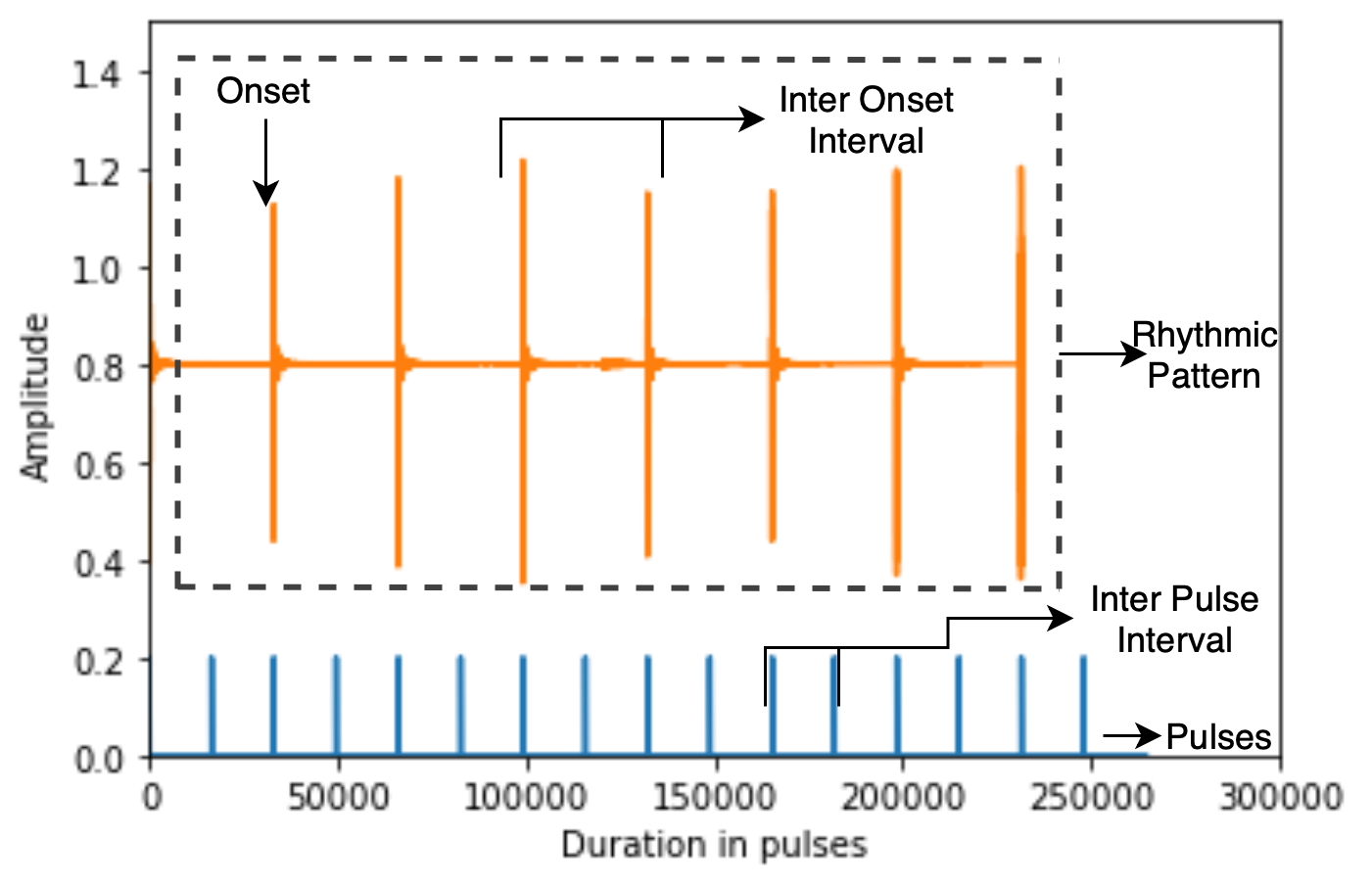We present a computational assessment system that promotes the learning of basic rhythmic patterns. The system is capable of generating multiple rhythmic patterns with increasing complexity within various cycle lengths. For a generated rhythm pattern the performance assessment of the learner is carried out through the statistical deviations calculated from the onset detection and temporal assessment of a learner's performance. This is compared with the generated pattern, and their performance accuracy forms the feedback to the learner. The system proceeds to generate a new pattern of increased complexity when performance assessment results are within certain error bounds. The system thus mimics a learner-teacher relationship as the learner progresses in their feedback-based learning. The choice of progression within a cycle for each pattern is determined by a predefined complexity metric. This metric is based on a coded element model for the perceptual processing of sequential stimuli. The model earlier proposed for a sequence of tones and non-tones, is now used for onsets and silences. This system is developed into a web-based application and provides accessibility for learning purposes. Analysis of the performance assessments shows that the complexity metric is indicative of the perceptual processing of rhythm patterns and can be used for rhythm learning.
翻译:我们提出了一个促进学习基本节奏模式的计算评估系统,这个系统能够产生多重有节奏的模式,在不同的周期长度内越来越复杂。为了产生节奏模式,对学习者的业绩评估是通过从开始发现和对学习者的表现进行时间评估所计算的统计偏差进行的。这个系统与生成的模式进行比较,其性能准确性构成对学习者的反馈。当业绩评估结果处于某些错误界限内时,这个系统开始产生一种新的更加复杂的模式。这个系统因此模仿了学习者与教师的关系,作为学习者在反馈基础上学习的进展。每个模式的周期内的进展选择由预先界定的复杂度指标决定。这个指标基于一个代码化要素模型,用于对顺序刺激进行感知处理。早先为通量和非通量序列提出的模型现在用于开始和沉默。这个系统发展成一个基于网络的应用,为学习目的提供无障碍。对业绩评估的分析表明,复杂度指标是了解节奏模式的精度处理方法,可以用于学习的节奏。

